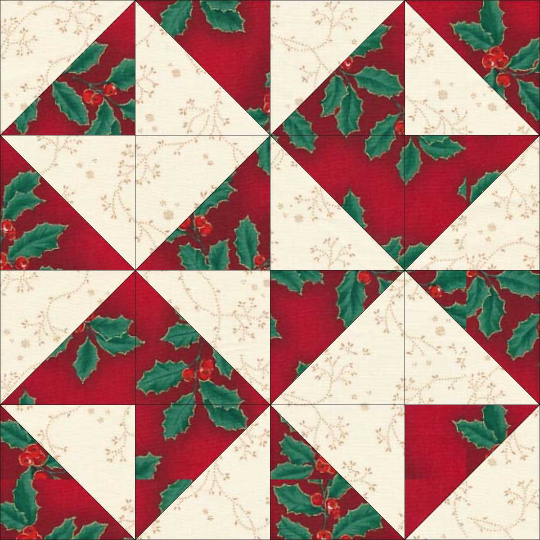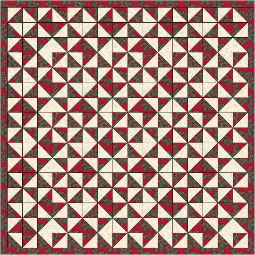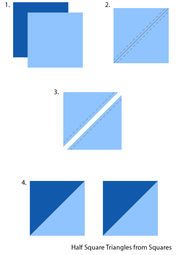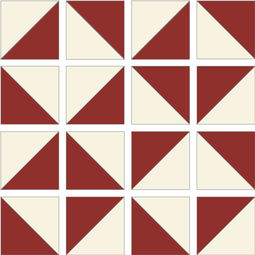Chisholm Trail

This busy block is called Chisholm Trail. We're getting close to the holidays so I couldn't resist using this holly fabric. This block consists of 16 half square triangles. I included an example quilt, using this block, so that you can see how the blocks interact with each other. AccuQuilt GO! Dies and rotary cutting instructions are provided.
Fabric
Fabric A - Cream fabric
Fabric B - Red fabric
AccuQuilt GO! Dies
8" Block
Cut 16 Fabric A Triangles - Go!Half Square 2" Finished Triangles: Die 55063 or Value Die 55018
Cut 16 Fabric B Triangles - Go!Half Square 2" Finished Triangles: Die 55063 or Value Die 55018
12" Block
Cut 16 Fabric A Triangles - Go!Half Square 3" Finished Triangles: Die 55009
Cut 16 Fabric B Triangles - Go!Half Square 3" Finished Triangles: Die 55009
Rotary Cutting
8" Block
Cut 8 - 2 7/8" squares for half square triangles from Fabric A
Cut 8 - 2 7/8" squares for half square triangles from Fabric B
12" Block
Cut 8 - 3 7/8" squares for half square triangles from Fabric A
Cut 8 - 3 7/8" squares for half square triangles from Fabric B
 Block Assembly Instructions
Block Assembly Instructions
1. Assemble sixteen Fabric A and Fabric B half square triangles. Refer to the Half Square Triangles from Squares diagram if using rotary cut pieces or visit the Half Square Triangles Quilting Basic Section for more information.
2. Finger press the seam allowances toward the darker fabric. Double check measurements of the half squares. If doing the 8" block, your half squares should measure 2 1/2" unfinished. If doing the 12" block, your half squares should measure 3 1/2" unfinished. If the square ended up too small, check your seam allowance is a scant 1/4" or if it was too big, trim down.
3. Arrange the half square triangles as shown in the exploded view.
4. Starting with the first row, align, pin and sew the squares together to form the first row unit. Sew the remaining three rows in the same manner.
 5. Press the seam allowances of each unit in opposite directions to make it easier to nest the seams.
5. Press the seam allowances of each unit in opposite directions to make it easier to nest the seams.
6. Match the seam lines in the first and second row, nesting the seams then pin. Sew the first and second units together. Continue to add the third and fourth row units in this manner. Press the block on the back then the front.


Leave a Comment